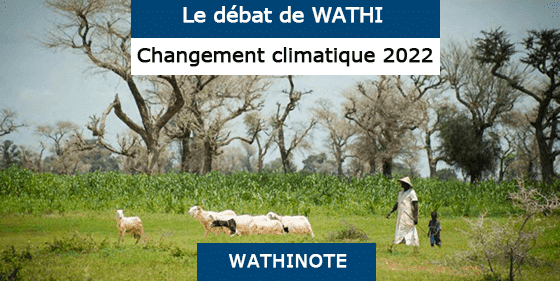

Authors : Philip Antwi-Agyei, Andrew J.Dougill, JohnDoku-Marfo, Robert C.Abaidoo
Affiliated organization : Climate Services
Site of publication : sciencedirect.com
Type of publication : Article
Date of publication : April 2021
Background context
Agriculture has been identified as one of the priority sectors for adaptations where the Nationally Determined Contributions (NDCs) of West African states have pledged significant commitments. West African farmers are also confronted with challenges relating to the selection of crop varieties as well as the timing of planting, and other agronomic practices. The region produces an estimated 30% of the food requirements of the African continent, yet, droughts, extreme weather events, economic downturns, frequent food crises and famines characterize this region. Whilst the capability of climate services to reduce climate impacts is alluring, empirical evidence on how best to mainstream climate information services in West Africa, more precisely Ghana, is lacking.
Climate change as a recognised threat to development and agricultural productivity in West Africa
Climate change is acknowledged and highlighted by most of the national policies as a threat to socioeconomic development and increased agricultural productivity in West Africa. For instance, Ghana’s National Climate Change Policy (NCCP), 1st National Communication to the UNFCCC and the 2nd National Communication to the UNFCCC mentioned climate change 545, 381 and 520 times, respectively.
The ECOWAS Policy for Disaster Risk Reduction states that: “climate change factors are likely to worsen drought conditions and coastal erosion, change vegetation patterns, and increase tidal waves and storm surges.”
Analysis of national development plans of Anglophone West African countries also reveals that climate change is recognized as a threat to socioeconomic development. The Gambia National Development Plan indicates: “The Gambia is susceptible to the vagaries of the environment and climate change, e.g. droughts and flooding, which cause much damage to coastal ecosystems, farmlands, settlements, and livestock” (Ministry of Finance and Economic Affairs, 2018).
Agriculture is critical in efforts to combat poverty and food insecurity in this region, with majority of low income households depending on it for their livelihoods. Climate services provide opportunity for farmers to make critical climate-sensitive livelihood decisions so as to improve food security.
Climate information services (CIS) for addressing climate change in West Africa
Analysis reveals that CIS has not been incorporated into these climate facing strategic national and regional policy documents. For instance, important national climate change documents including the NDCs of Ghana and Sierra Leone never made mention of CIS. Additionally, there should be appropriate strategy to merge CIS with local traditional agro-ecological knowledge for effective decision-making for climate risks management by smallholder farmers across West Africa.
Challenges of mainstreaming climate services into local and sectoral plans in Ghana
Low awareness of climate information is high among key stakeholders including local policy makers and farmers who are the end-users of climate information at the local level. It could also be attributed to the seemingly limited reliability of climate information provided by national meteorological services as a tool for managing crop production in vulnerable farming systems.
Lack of awareness or trusted information about uncertainties, risks, opportunities, and trade-offs present challenges to policy makers. Policy makers and national agencies and ministries including the Ministry of Food and Agriculture and the National Meteorological Agencies should be capacitated to run training programmes aimed at creating awareness and enhancing understanding of climate change issues.
Human and institutional capacity constraints was reported as one of the key issues militating against the mainstreaming of CIS in Ghana. Within the context of other developmental challenges, climate change issues are relatively new, meaning capacities to address these challenges are usually limited, especially at the sub-national and local levels, where adaptation implementations are usually undertaken. It was noted that in most agencies and departments, the necessary institutional arrangements (such as the creation of climate change desk) required for mainstreaming climate is mostly non-existent.
West African countries should take advantage of training initiatives managed by national and international organizations including those organized by the World Meteorological Organization Training Centres. Capacity building through workshops and training sessions to smallholder farmers and the wider community of technicians in national agro-meteorological services provide a plausible mechanism to deliver new information tools and deeper awareness on climate change impacts.
Ghana is practising a decentralisation governance system where decision-making resides in the local assembly. However, these local assemblies are often confronted by a range of climatic and non-climatic stressors that sometimes interact to exacerbate the vulnerability of smallholder farmers in these assemblies.
Limited understanding and appreciation of the vulnerability context at the local level by policy makers was also highlighted as a key factor constraining the mainstreaming of CIS to address climate change.
Most local assemblies have not conducted local level vulnerability assessments. Consequently, institutions and agencies that are mandated to address climate change may not fully understand the climate change issues and the various vulnerability hotspots that require intervention.
Les Wathinotes sont soit des résumés de publications sélectionnées par WATHI, conformes aux résumés originaux, soit des versions modifiées des résumés originaux, soit des extraits choisis par WATHI compte tenu de leur pertinence par rapport au thème du Débat. Lorsque les publications et leurs résumés ne sont disponibles qu’en français ou en anglais, WATHI se charge de la traduction des extraits choisis dans l’autre langue. Toutes les Wathinotes renvoient aux publications originales et intégrales qui ne sont pas hébergées par le site de WATHI, et sont destinées à promouvoir la lecture de ces documents, fruit du travail de recherche d’universitaires et d’experts.
The Wathinotes are either original abstracts of publications selected by WATHI, modified original summaries or publication quotes selected for their relevance for the theme of the Debate. When publications and abstracts are only available either in French or in English, the translation is done by WATHI. All the Wathinotes link to the original and integral publications that are not hosted on the WATHI website. WATHI participates to the promotion of these documents that have been written by university professors and experts.
